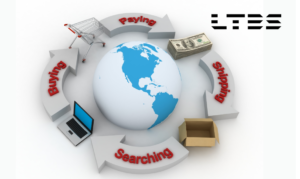Key Considerations – Launching Ecommerce In International Markets

Key Considerations – Launching Ecommerce In International Markets
We recently looked at the benefits of expanding your business into international markets, and the steps you will need to take. Fortunately there is lots of help available for UK businesses looking to tap into overseas trade, not least from UKTI.
If you do get the opportunity to work with an UKTI international trade advisor take it, as they will understand the market you wish to target and will be able to help avoid any problems. However, not every business qualifies for this level of support; perhaps you’re not looking to launch in countries UKTI are prioritising, or your business model does not quite meet the criteria.
If this is the case, here are some key factors you should be aware of when looking to sell online in other regions, and where to find help and support.
Barriers To Trading Overseas
Of course there are barriers to expanding into international markets; otherwise everyone would be doing it. These common issues can affect SMEs getting to market:
- Regulatory issues: Red tape is a byproduct of expanding beyond the domestic market and will vary depending on the country or region you plan to target. UKTI’s International Trade Advisors can provide professional advice, or help you access the information you require. You can also search UKTI’s comprehensive country guides that include legal considerations and resources for doing business in your chosen country.
- Labeling: Another potential regulatory minefield depending on your product, this can also extend to the way you advertise a product or list it online. Guidelines for product labeling in the EU are available here.
- Product testing: Certification of your goods may be necessary by local authorities. In Europe, products complying with EU safety, health and environmental requirements should carry the ‘CE’ marking; The ‘Blue Guide’ on the implementation of EU product rules is available to download here.
- Intellectual property: If your product has high value IP you must look to protect it. IP protection is territorial so you must register your intellectual property in those countries you wish to sell online in to. Advice can be found on GOV.UK.
- Prohibitive administrative processes: All of the issues above may contribute to making it expensive or too onerous to sell online in certain regions. Other costs and processes may also deter you, such as shipping and export costs, VAT MOSS and unexpected charges.
- Language: Language and cultural differences can present many difficulties: from marketing your products, to managing expectations, or dealing with special requests and problems. Localisation is the key to success, which starts with understanding your target market.
Forewarned is forearmed and therefore if you investigate fully your intended market and assess the potential barriers, you will be in a much stronger position to take up these opportunities and be successful.
With growth in online sales being seen in many overseas markets, now’s the time for UK eCommerce merchants to use their considerable experience and grow their businesses too




